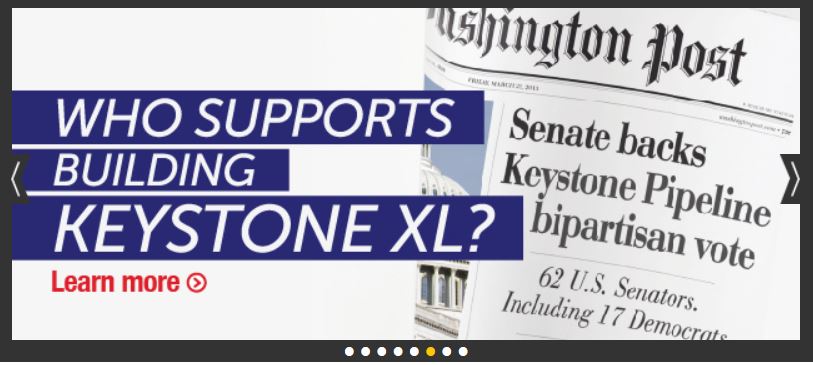
How Companies Anonymously Influence Climate Policy
 Whether its collapsing tennis players in the brutal Australian heat, the Arctic vortex in North America or perpetual storms and flooding in the UK, the issue of extreme weather and climate change is constantly in the news right now.
Whether its collapsing tennis players in the brutal Australian heat, the Arctic vortex in North America or perpetual storms and flooding in the UK, the issue of extreme weather and climate change is constantly in the news right now.
As our climate visibly changes around us, far away from the headlines, fossil fuel companies continue to exert huge undue influence over climate and energy legislation.
And one way they do this is via one of the oldest and most used public relations and lobbying techniques: the third party technique.
Once described as the “heart of PR”, the third party technique is essentially putting your words in someone else’s mouth. The fossil fuel industry, learning from the tobacco industry, continues to be a master at using the technique, whether it be funding politicians, scientists, think tanks, or lobby groups.
And of course there is a more mundane third party that is often over-looked. As a new report from the Centre for Science and Democracy at the Union of Concerned Scientists (UCS) argues, trade and business associations continue to be major players in public policy in the US.
As the oil industry and its supporters have become more devious in funding third parties through trust funds such as the Donors Trust, which are opaque in their funding streams, it is easy to forget the role of good old-fashioned trade associations. But these are vital lobbying weapons for the industry.
Providing many benefits to their member companies, “one of the most important is the leverage they provide for influencing policy through political activities such as campaign contributions, lobbying of elected officials, and issue advertising,” argues the UCS.
And of course this influence is anonymous. So if the American Petroleum Institute fights climate legislation, it can allow Shell, for example, to distance itself from it. It gives companies plausible deniability on an issue.
And the reason this is important is that a report by the UCS last year found that trade associations often block meaningful climate action or misrepresent climate science.
But also beginning last year, the UCS along with the CDP (the Carbon Disclosure Project) began sending questionnaires to companies asking whether they agreed with the climate policy positions of the trade associations.
The results are extremely revealing and show that many companies were not willing to be transparent about their political activity through trade associations.
Over half of the companies who received the questionnaire opted out of participating, including household names such as Apple, Amazon and Facebook.
Although nearly half of the companies who did respond conceded that they could influence public policy via their trade association, many also conceded they did not necessarily agree with the climate policy positions of their trade associations.
For example, nine of 15 the companies which responded being board members of the National Association of Manufacturers (NAM) stated that their positions on climate policy were “mixed” or “inconsistent” compared with NAM’s position.
Board member companies on other hugely influential trade associations, such as the American Petroleum Institute, which has been more active than most to derail climate action, argued that the trade association’s message on climate was “mixed” or “inconsistent” with their own.
Some companies came up with pretty lame excuses for their inaction to influence the API’s position.
One board member Statoil stated that it is “a relatively small company in the United States and is usually not in a position to direct the API’s position on climate. However, we inform API when we disagree [with] positions they are taking.”
Shell argued that it “attempt[s] to mitigate negative [API] positions when necessary” but that the company has “little scope for major positive advocacy work on climate change legislation.”
For a company such as Shell – which just blown $5 billion on exploratory drilling in the Arctic – to argue that it has “little scope” for positive advocacy work on climate legislation is extremely damning. It reveals the oil company’s true colours towards climate change. The company may issue glossy adverts and greenwash its operations, but it cannot be bothered to spend any of its copious cash on positive advocacy work on climate change.
The UCS argues that one way for this situation to change is for investors to pressure companies to influence the policy position of the trade associations they are members of. Lets hope that happens soon.
